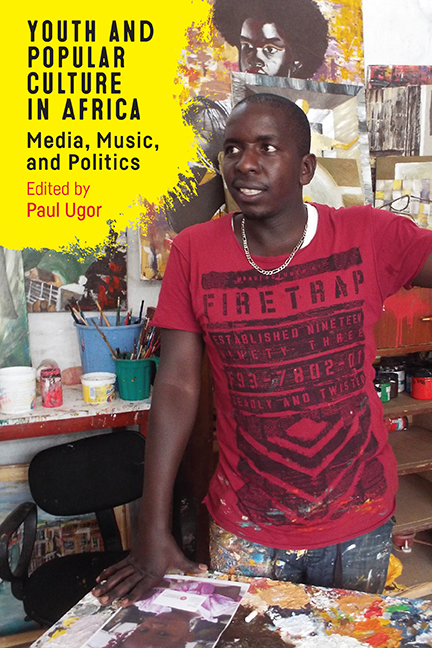Book contents
- Frontmatter
- Dedication
- Contents
- Preface
- Introduction: Youth, Media, and Popular Arts Culture in Contemporary Africa
- Part One Media Globalization, Popular Afro Hip-Hop, and Postcolonial Political Critique
- Part Two Popular Online Media and Democratic Participation and Engagement
- Part Three Popular Arts, Everyday Life, and the Politicization of Culture
- Afterword: Young People and the Future of African Worlds
- Notes on Contributors
- Index
2 - Rapping, Imagination, and Urban Space in Dar es Salaam
Published online by Cambridge University Press: 26 May 2022
- Frontmatter
- Dedication
- Contents
- Preface
- Introduction: Youth, Media, and Popular Arts Culture in Contemporary Africa
- Part One Media Globalization, Popular Afro Hip-Hop, and Postcolonial Political Critique
- Part Two Popular Online Media and Democratic Participation and Engagement
- Part Three Popular Arts, Everyday Life, and the Politicization of Culture
- Afterword: Young People and the Future of African Worlds
- Notes on Contributors
- Index
Summary
The first hip-hop recordings arrived in Dar es Salaam in the mid-1980s when films like Wild Style and Breakin’, which featured early hip-hop recordings in their soundtracks, were being shown in the city. High import duties ensured that hip-hop recordings were scarce and principally available to wealthier Tanzanians, who consequently formed many of the early rap groups. Following the liberalization of the media in the early 1990s, there has been a proliferation of new musical genres collectively defined as muziki wa kizazi kipya (music of the new generation). This loose set of genres such as hip-hop, bongo flava, R’n’B, reggae, and zouk are mostly associated with youth. The new generation that performs these genres entered adulthood during structural adjustment reforms and is marked by their appropriation of style, form, and fashion from the transnational circulation of popular musical forms.
As these genres have become popular, rapping has become a widespread cultural practice among young people. It has produced musical stars as well as unrecorded maandagraundi (or underground) rappers. The most popular rappers have become not only national or regional stars but also continent-wide celebrities regularly performing on TV channels such as Channel O and MTV Africa and at TV spectacles such as the Big Brother Africa. By contrast, underground rappers define themselves through their exclusion from these transnational circuits of commercial musical production, distribution, and dissemination. Central to the practice of underground rapping are unplanned settlements commonly referred to as uswahilini, which provide space for underground rapping practice and performance. Informal spaces of sociality referred to as maskani (dwelling or abode) or kijiweni (little stone) act as the primary informal performance spaces for aspiring underground rappers. The young men who spend time at maskani in uswahilini are largely underemployed (popularly referred to as daywaka) or engaged in mishe-mishe (looking for money).
In this chapter I will argue that underground rapping provides a space for young people in Tanzania to engage with the world conceptually, philosophically, and discursively. Underground rappers draw on both the transnational signs and symbols of hip-hop as well as local creative, political, and imaginative discourses to empower themselves as social actors.
- Type
- Chapter
- Information
- Youth and Popular Culture in AfricaMedia, Music, and Politics, pp. 63 - 87Publisher: Boydell & BrewerPrint publication year: 2021



